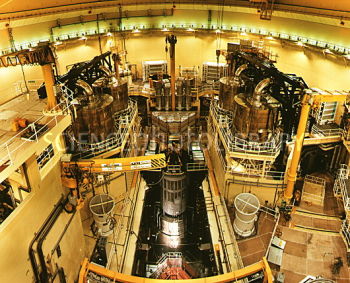Chronic Delays Making Already Extremely Expensive Power Source Even More Costly: At Least 49 Out of 66 Reactor Projects Now Running Behind Schedule, Including All 5 in U.S. and Most in China.
Contrary to what is often claimed in the United States by proponents of nuclear power, the reality is that other nations around the globe do not have a better track record when it comes to delivering nuclear reactor projects on time and on budget, according to an updated analysis conducted by the authors of the “The World Nuclear Industry Status Report 2014”.
Through September 15, 2014, at least three out of four (49 off 66) reactors under construction around the world were running behind schedule, including delay announcements in recent weeks in the U.S. (two reactors – Virgil C. Summer Nuclear Station Unit 2 and Virgil C. Summer Nuclear Station Unit 3), South Korea (two reactors – Shin-Hanul-2 and Shin-Wolsong-2) and Finland (Olkiluoto-3, which is likely to be a decade behind schedule upon delivery). Little is known about the progress on four nuclear reactors in India. All the other reactor projects have been under way for less than two years, which makes it difficult to identify delays in the absence of full access to information.
For the updated list of the 66 reactors under construction (and related delay details) go to http://bit.ly/worldreactordelays.
In part as a result of construction cost overruns, long-delayed reactor projects around the world are billions of dollars over budget, including Finland’s Olkiluoto-3 and France’s Flamanville-3, both running about $7 billion over their initial budgets and now projected to cost more than $11 billion.
Mycle Schneider, Paris-based international consultant on energy and nuclear policy and lead author of “The World Nuclear Industry Status Report 2014,” said: “Delays in construction – some of them multi-year – are a key factor behind rising costs and the clear trend of the shrinking share of nuclear energy in the world’s power production, which declined steadily from a historic peak of 17.6 percent in 1996 to 10.8 percent in 2013. That trend is likely to persist as costly construction delays continue to dog the relatively small number of new reactor projects around the globe.”
Peter Bradford, currently adjunct professor on Nuclear Power and Public Policy, Vermont Law School, former member of the U.S. Nuclear Regulatory Commission, and former chair of the New York and Maine state utility regulatory commissions, said: “For the last 40 years, the U.S. nuclear power industry has been plagued by construction delays and by cost overruns. Because nuclear power is already more expensive than alternative ways both of generating electricity and of fighting climate change, these delays and overruns further undermine nuclear power’s claim that special nuclear subsidies are an essential part of the world’s climate change strategy.”
According to today’s update on the status of nuclear reactor delays around the globe:
* China – often cited in the U.S. as an example of where nuclear power is being delivered on time and inexpensively – is actually experiencing construction delays at 20 of its 27 reactor projects.
* Russia is seeing delays at nine out of nine reactor projects.
* India is reporting delays at two out of six reactor projects, but little information is available about the on-time status of the other four.
* South Korea is seeing delays at four out of five reactor projects.
* The United States is reporting delays at all five new reactor projects now under construction.
The balance of nations—Argentina, Belarus, Brazil, Finland, France, Pakistan, Slovakia, UAE, Ukraine—with new projects under construction all have either one or two reactors being built. All of these reactor projects are either behind schedule or are not being reported on publicly.
For the full nation-by-nation details on reactors under construction and related delays, go to http://bit.ly/worldreactordelays.
Eight reactors have been listed as “under construction” for more than 20 years, another for 12 years. Fourteen countries are currently building nuclear power plants. With Belarus, a new country was added in the last year to the list of nations engaged in nuclear projects, while Taiwan has halted construction work at two units.

